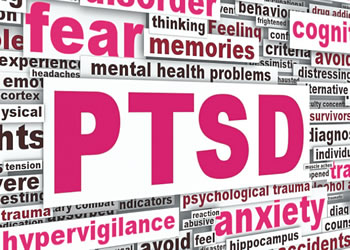PTSD (post-traumatic stress disorder) is a mental health condition that develops after going through a traumatic event or experience. It could be a life-threatening situation that can affect you spiritually, physically, or emotionally.
People with PTSD experience anxiety and depression, avoid places or activities and have nightmares. You can develop trauma from people’s stories or witnessing a traumatic event. It could be sudden death, abuse, sexual assault, earthquake, and bullying.
Symptoms of PTSD:
- Constantly remembering memories that are hurtful and quite negative but also seem like it just happened, which could also create nightmares.
- Avoiding to talk about the experience that shaped your current state of mind or condition. Also, avoid going to places, engaging in certain activities and meetings that would bring back such traumatic memories.
- Finding it difficult to relate with others; just angry about everything around you, blaming yourself and feeling ashamed.
- Overreacting to things, such as being easily startled, overly watchful of your environment, having unnecessary outbursts, and lacking concentration.
Read Also: Researchers find children in care homes suffer abuse, child labour, risk PTSD
Treatment
Not everyone who develops PTSD needs psychiatric help or treatment; for some, it just subsides over time. But in some cases, the best option is to seek professional treatment and support from friends and family. To recover from this psychological distress, these are the possible treatment one can do:
1. Cognitive Processing Therapy
Cognitive Processing Therapy is one of the behavioural therapy designed to treat people with PTSD. It helps with negative emotions and beliefs that spring up due to trauma. Therapists support the patient by ensuring such memories and distressing memories vanish.
2. Trauma-Focused Cognitive Behavioural Therapy
It is a treatment focused on children and adolescents that involves different trauma interventions with techniques and principles.
3. Group Therapy
For group therapy, the survivors are encouraged to share their experiences with people they are comfortable with. It could be within the family or people of similar stories coming together to uncover what they’ve been through.
4. Medication
Medication can also help with PTSD. Some antidepressants are either used alone or combined with psychotherapy for adequate treatments.
